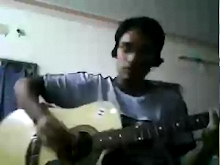From the
'Speaking Tree' Column in the Times of India on Saturday Nov 6, 2010
A Beginner's Mind - Marguerite Theophil
http://tinyurl.com/2vpojrdSome Excerpts: * Shoshin, a concept in Zen Buddhism meaning beginner's mind, refers to having an attitude of openness, eagerness, and lack of preconceptions when learning, even when studying at an advanced level.
* People get
impatient with their slowness in figuring out something different; or they cannot bear to display their own early incompetence, that is so necessary before one can get better.
* 'I know' attitude - A friend humorously yet perceptively called it "the point of know return".
* Shunryu Suzuki's explanation, captures it best: "In the
beginner's mind there are many possibilities, in the expert's mind there are few."
* "
Don't-know is the warrior's wisdom." At crucial moments, it can help you take a step back and allow you to respond to the situation as it truly is. Beginner's mind can keep you open to new possibilities and break old habits of responding, taking you closer to what you truly want.
The idea behind this approach is that you take all of the things you know – your expertise, opinions, reason and logic, even your cherished beliefs – and you put them all away.
Notice:
you don't throw it all away; you just
'empty your pockets' of them for a while. Later you can put them all back in. The thing to understand is that there is as important a place in our lives for "I don't know", as there is for "I know".
Most of the time
what we 'know' are our assumptions of what might possibly happen, or experience and judgements about similar situations, or conclusions we came to on previous occasions.
But
real learning takes hold in the
here-and-now.
It happens in the moments of
fumbling, in the
flashes of success, in the
natural plateaus we mistake for 'nothing happening', and in progression of skill and competence as we plod on. Focus on either the past, as in "Oh but i learnt this or that so much faster", or the future, even surprisingly in the much-valued goal setting process, as in "I need to get really good at this by this date", often can and does create mental obstacles for us.
To cultivate beginner's mind, some things we are invited to do are –
let go of old stories; set aside expertise and status;
take one step at a time; immerse yourself fully in the moment; focus more on questions than answers; fall down seven times, get up eight.




